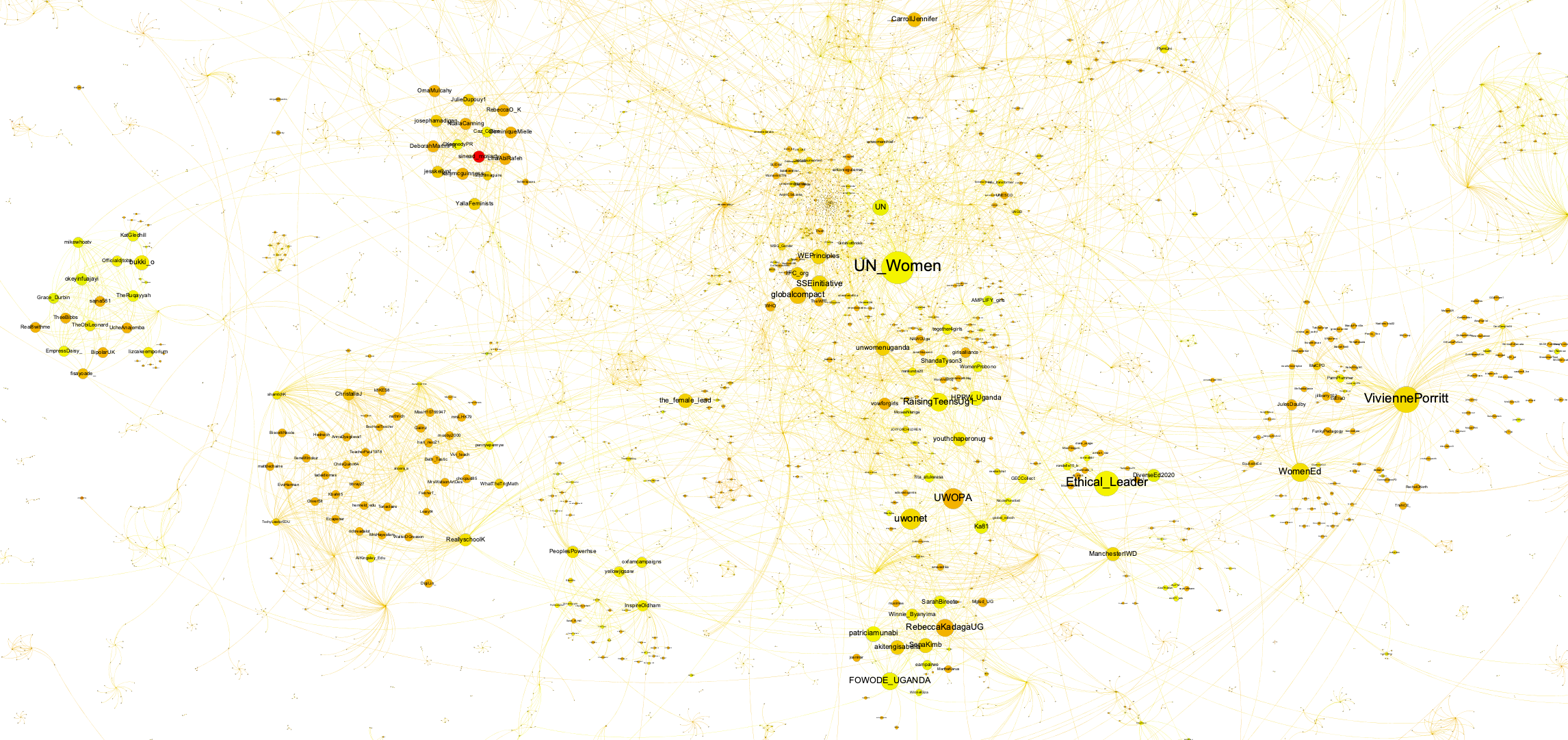INBOX INSIGHTS: Online Training, Sentiment Analysis, Process Development (3/9) :: 
Online Training Courses
In case you weren’t aware, we ask a one-question survey each quarter. On that day, we get to hear from you and learn about your world. We get to hear firsthand what’s going on with you. It’s one of my favorite things that we do.
This quarter, we’re curious about what kind of training you need this year. We were inspired by the recent CMO Survey that came out in February. It stated that:
- 59.2% prefer to hire and train their new marketers in-house
- 15.7% prefer to partner with other marketing agencies to learn new skills
- 12% prefer to partner with other consultancies to learn new skills
- 11.9% prefer to partner with other companies to learn new skills
- 1.3% prefer to buy other companies to learn new skills
It’s interesting to me that companies are moving toward hiring and training internally. I know from my own personal experience that lack of professional development and growth is a big reason for employee turnover.
So I ask you – what is it that you want to learn and be trained on this year?
Trust Insights is working on launching training courses covering Google Analytics, Data Analytics, Search Console, and more. Stay tuned for that. If you can’t wait – scroll down the newsletter to the “Free Training Classes” section to see what we have on-demand so far. You can also find a full list of videos on our site here.
In the meantime, here are some resources that might help you on your quest for knowledge:
Analytics Academy helps you learn about Google’s measurement tools so that you can grow your business through intelligent data collection and analysis. You can take courses by level: Beginner, Advanced, and Power Users. You can also take a course that will teach you the basics of Google Tag Manager and Data Studio.
The PESO Model Certificate is for communicators who want to gain advanced skills and a comprehensive understanding of how to build and scale an integrated program within any sized organization. The PESO model certification is powered in partnership with the Newhouse School at Syracuse University, otherwise known as one of the top communications institutions in the world.
AI Academy for Marketers is an online education platform that helps you understand, pilot and scale artificial intelligence.
Use one of the following codes:
- TRUST25 – Saves 25% off any Academy purchase
- ROBBERT100 – Saves $100 off any Academy purchase
Learn the missing skill-sets needed to accelerate AI adoption in your organization. There are four tracks with multiple courses to help accelerate the AI Transformation in your organization
MarketingProfs Training Courses
Our courses train you in the specific skills you need for success. Strategy. Campaign planning. Asset creation. Communication and distribution. Analysis and optimization. And how to manage it all. Each course is tailored to the type of campaign you’re working on. No fluff. Just exactly what you need to achieve the result you deserve.
What courses are you taking this year?
Let me know in our free Slack group, Analytics for Marketers »
– Katie Robbert, CEO

You’re subscribed to our newsletter at this address: {contactfield=email}

Do you have a colleague or friend who needs this newsletter? Send them this link to help them get their own copy:
https://www.trustinsights.ai/newsletter

In this week’s In-Ear Insights, Katie and Chris walk through effective process development for marketing, especially marketing technology. Listen in as they work out the process for setting up a Twitter hashtag monitoring bot for Social Media Marketing World.
Watch/listen to this episode of In-Ear Insights here »
Last week on So What? The Marketing Analytics and Insights Live show, we looked at the people part of marketing strategy. Catch the replay here »
This Thursday at 1 PM Eastern, we’ll be reviewing the February 2022 CMO Survey and our thoughts about it.
Are you following our YouTube channel? If not, click/tap here to follow us!
Need a reminder?

Here’s some of our content from recent days that you might have missed. If you read something and enjoy it, please share it with a friend or colleague!

Get skilled up with an assortment of our free, on-demand classes.

In this week’s Data Diaries, a cautionary tale about sentiment analysis. For those unfamiliar, sentiment analysis is a type of machine learning which attempts to assign sentiment scores to words, phrases, and sentences. You’ll see these types of measurements in systems like social media monitoring tools, press coverage tools, and other natural language processing.
However, sentiment analysis is still highly problematic. The earliest approaches used a methodology known as “bag of words”, assigning simple scores to words based on their probability of sentiment. For example:
- “Happy” would be rated 1.
- “Angry” would be rated -1.
- “Birth” would be rated 1.
- “Murder” would be rated -1.
This approach, which is computationally very fast, also tends to provide very misleading results, especially at a granular level such as a single tweet. Over the years, more sophisticated algorithms have been developed by vendors that take into account negation words:
- “I’m very happy” would be rated 1.
- “I’m not happy” would be rated 1 by the bag of words approach but -1 by a system that looks at modifiers.
Even this approach creates challenges, especially when you start looking at the sentence level. Imagine how a machine would pick apart this sentence:
“How pissed am I that my football team won? NOT AT ALL”
And that’s just with American English; that sentence would have a totally different meaning with UK English (“pissed” is jargon for drunk in UK English).
But even the most sophisticated language models today – models like the GPT family – still struggle with assigning sentiment in context. Every year – whether we publish something or not – we gather data about International Women’s Day, mainly from Twitter. When we examine one of the most “negative” tweets scored by the best-in-class Stanford NLP library, we see this:

Why did a machine learning library score this tweet so negatively? The language, out of context, is indeed associated with negative sentiment. But the overall intent – Sinead Moriarty encouraging readers to read Lucy Maguire’s essay – is positive.
If you had constructed some sort of internal process to address negative sentiment, this tweet would probably end up in the wrong pile.
So what? What’s the takeaway from all this? Be very careful in how you use sentiment analysis, and be highly skeptical of vendors who offer it in their software. Ask vendors who offer it what approach they take and what algorithms they use before you rely on the data – and check its output frequently to make sure it’s still classifying text correctly. This is especially important if you’re using sentimental analysis for tasks like customer care.
Be equally careful about understanding the context of the language you’re evaluating. Here’s a snapshot of the most talked about people in a sample of the International Women’s Day conversations:

The individuals who were tweeting were assigned a color scale – green for positive sentiment, red for negative sentiment, yellow for neutral sentiment. Note that the overall sentiment for the major nodes and conversations is negative.
And that’s both expected and a good thing because the conversations for International Women’s Day were about breaking biases, about understanding systemic issues, about highlighting serious problems like ongoing pay inequality. These aren’t issues that should have positive sentiment until they’re resolved. That context will be absent from every sentiment analysis tool in the marketplace because machines cannot understand context at all. They do not understand intent in language, only statistical probabilities.
Sentiment analysis isn’t in a place yet where you can rely on automation alone to determine accuracy of sentiment. Use it sparingly, with lots of human supervision, and definitely do not let machines make decisions with it.
Methodology: Trust Insights extracted 111,417 unique tweets from Twitter’s streaming API for the hashtags IWD22 and IWD2022. The timeframe of the data is March 8, 2022 – March 9, 2022. The date of study is March 9, 2022. Trust Insights is the sole sponsor of the study and neither gave nor received compensation for data used, beyond applicable service fees to software vendors, and declares no competing interests.


This is a roundup of the best content you and others have written and shared in the last week.
Content Marketing
Data Science and AI

Are you a member of our free Slack group, Analytics for Marketers? Join 1900+ like-minded marketers who care about data and measuring their success. Membership is free – join today. Members also receive sneak peeks of upcoming data, credible third-party studies we find and like, and much more. Join today!

- Are you happy with the answers you’re getting out of Google Analytics today?
- Are you confident in the decisions you’re making from Google Analytics?
- Are you secure in the knowledge that you’re set up properly to benefit from Google Analytics 4?
If you answered no to any of the questions above, let’s take some time to get your analytics in shape. Google Analytics 4 is the analytics software of the future. Google has made no bones about the fact that anything new they develop will be in GA4 only. To take advantage of the new features, you need to get your house in order now.
So we’re offering you a Google Analytics 4 bootcamp. We’ll help you:
- Get your existing Google Analytics account in shape with proper goals, tracking cleanup, and best practices
- Identify key issues that will block your ability to use Google Analytics 4 and help resolve them
- Help set an analytics strategy for this that focuses on answers, decisions, and growth rather than pouring more data in your inbox
- Build a migration plan for Google Analytics 4, including Google Tag Manager and Google Data Studio
Click here to order a Google Analytics bootcamp »
Interested in sponsoring INBOX INSIGHTS? Contact us for sponsorship options to reach over 22,000 analytically-minded marketers and business professionals every week.

Where can you find us in person?
- MarketingProfs B2B Forum, April 2022, virtual
- MAICON, August 2022, Cleveland, OH – use code PENN150 for $150 off any conference ticket
- MarketingProfs B2B Forum, October 2022, Boston
Going to a conference we should know about? Reach out!
Want some private training at your company? Ask us!

First and most obvious – if you want to talk to us about something specific, especially something we can help with, hit up our contact form.
Where do you spend your time online? Chances are, we’re there too, and would enjoy sharing with you. Here’s where we are – see you there?

Our Featured Partners are companies we work with and promote because we love their stuff. If you’ve ever wondered how we do what we do behind the scenes, chances are we use the tools and skills of one of our partners to do it.
Read our disclosures statement for more details, but we’re also compensated by our partners if you buy something through us.

Some events and partners have purchased sponsorships in this newsletter and as a result, Trust Insights receives financial compensation for promoting them. Read our full disclosures statement on our website.

Thanks for subscribing and supporting us. Let us know if you want to see something different or have any feedback for us!

You’re subscribed to our newsletter at this address: {contactfield=email}
Unsubscribe here if you just don’t want the newsletter any more.